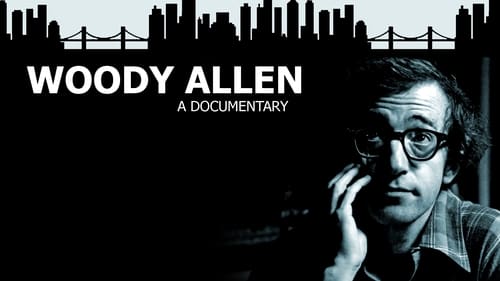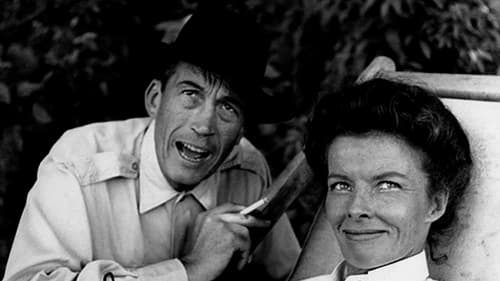
Self
Iconic writer, director, actor, comedian and musician Woody Allen allowed his life and creative process to be documented on-camera for the first time. With this unprecedented access, Emmy-winning, Oscar-nominated filmmaker Robert B. Weide followed the notoriously private film legend over a year and a half to create the ultimate film biography. "Woody Allen: A Documentary" chronicles Allen's career - from teen writer to Sid Caesar's TV scribe, from stand-up comedian to award-winning writer-director averaging one film-per-year for more than 40 years. Exploring Allen's writing habits, casting, directing, and relationship with his actors first-hand, new interviews with A-listers, writing partners, family and friends provide insight and backstory to the usually inscrutable filmmaker.

Self
The epic story of how the film The African Queen (1951), directed by John Huston and starring Humphrey Bogart and Katharine Hepburn, was shot on real African locations, barely overcoming all kinds of hardships and disasters.

Self
An appreciation and the story of the making of the 1941 film The Maltese Falcon.

Self
Short documentary about prohibition and gangsters and how it affected the movies of the day.

Himself

Self
A look at the motion picture production code and its effects on Hollywood.

Self
The making of the film with Drew Casper.

Self - author of 'Newman: A Celebration'
The Making of Cat on a Hot Tin Roof with Donald Spoto and Drew Casper.

Himself

Self
Short documentary about the making of "The Petrified Forest."

Self
An examination of "White Heat" (1949) by film historians and critics.

Self
This documentary is featured on Warner Brothers' DVD for The Roaring Twenties (1939), released in 2005.

Self
Documentary covering the Warner Bros. James Cagney /Pat O'Brien classic "Angels with Dirty Faces" (1938), hosted by film historian Rudy Behlmer.

Self
In the '40s Howard Hawks boasts that he can make a movie out of the worst thing Hemingway ever has written. When Hemingway asks, which novel he means, Hawks says To Have and Have Not. Jules Furthman writes a script, which follows the book closely. The location of the story is Cuba, but the US Government is against depicting corruption and violence on Cuba, and threatens to withdraw the film's export license. William Faulkner rewrites the script, and relocates the story to Martinique. Hawks's wife, Nancy Slim Gross, happens to see a young model at the cover of the magazine Harper's Bazaar, and shows it to her husband. Hawks is a star-maker, who likes to discover and nurture new talents. After a screen test, he chooses the 19-year-old model as the lead actress opposite Humphrey Bogart. She changes her name from Betty Perske to Lauren Bacall. At the first takes she is so nervous that she shakes.

A featurette exploring the gangster films made at Warner Bros., actor Humphrey Bogart's career, and the making of HIGH SIERRA (1941)

Self
An overview of the making of John Huston's 1948 classic "The Treasure of the Sierra Madre."

Self - Bogart Biographer
Bogart was interested in this project because it offered a chance to work with his new bride. The studio wasn't convinced but the result speaks for itself.

Self
Documentary looking at the film classic, They Drive By Night







